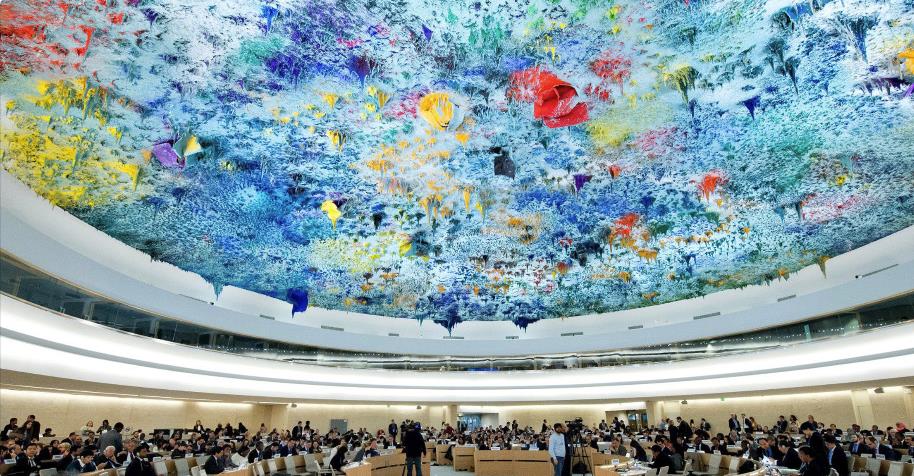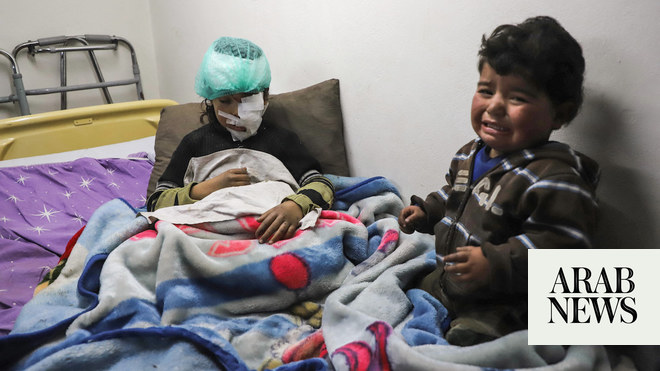
GENEVA (13 March 2023) – Parties to the conflict in Syria committed widespread human rights violations and abuses in the months leading up to the most devastating earthquakes to hit the region in more than a century, continuing a decade-long pattern of failures to protect Syrian civilians, the UN Syria Commission of Inquiry said Monday after launching their latest report on the country’s crisis.
The response to the recent massive earthquakes was characterised by additional failures that hindered the delivery of urgent and life-saving aid to northwest Syria. These failures implicated the Government and other parties to the conflict as well as the international community and the United Nations. They failed to secure agreement on an immediate pause in hostilities. They failed to allow and facilitate life-saving aid through any available route, including rescue teams and equipment in the vital first week after the earthquake. Syrians felt abandoned and neglected by those supposed to protect them, in the most desperate of times. Many voices are rightly calling for an investigation and for accountability.
Today, the UN Commission of Inquiry on Syria launches its latest report just ahead of the 12th anniversary of the Syrian crisis, documenting ongoing violations of human rights and humanitarian law throughout the country in the last six months of 2022, including the particularly appalling situation for Syrians along frontlines in the north and northwest.
“Though there were many acts of heroism amid the suffering, we also witnessed a wholesale failure by the Government and the international community, including the United Nations, to rapidly direct life-saving support to Syrians in the most dire need,” said Paulo Pinheiro, Chair of the Commission. “Syrians now need a comprehensive ceasefire that is fully respected, for civilians - including aid workers - to be safe. Incomprehensibly, due to the cruelty and cynicism of parties to the conflict, we are now investigating fresh attacks even in the very areas devastated by the earthquakes,” he added. These include last week’s reported Israeli attack on Aleppo international airport, a conduit for humanitarian aid.
In the immediate aftermath of the earthquake, it took the Syrian Government a full week to consent to life-saving cross-border aid access. The Government and opposition Syrian National Army (SNA) both impeded cross-line aid to affected communities, while Hayat Tahrir al Sham (HTS) in northwest Syria refused cross-line aid from Damascus.
“We are currently investigating several allegations of parties to the conflict deliberately obstructing humanitarian aid to the affected communities,” said Commissioner Hanny Megally. “As aid is now finally increasing, it is more important than ever that they consent to impartial humanitarian relief being delivered unimpeded to those in need, whether through cross-border or cross-line modalities,” he added.
Entire communities have been destroyed, with the UN estimating that some five million people require basic shelter and non-food assistance in the Syrian part of the earthquake zone. Already before the 6 February earthquakes, over 15 million Syrians - more than at any point since the start of the conflict - needed humanitarian assistance.
The Commission’s report, prepared before the devastating earthquakes, provides a summary of violations and abuses committed against civilians in Syria. In Government-controlled areas, the Commission documented increasing insecurity in Dara’a, Suwayda’ and Hama, and continuing arbitrary imprisonment, torture, ill-treatment and enforced disappearances. Violations of property rights included seizures, auctions and prohibitions on access to property.
Civilians living in the earthquake-affected northwest were particularly exposed to deadly attacks in the preceding months. In a single indiscriminate attack in November, Government forces used cluster munitions to strike densely populated displacement camps in Idlib governorate inside the opposition-held area, killing 7 civilians and injuring at least 60 more. In August, another indiscriminate attack involving ground-launched unguided rockets killed 16 civilians and injured 29 at and around a busy market in Al-Bab northeast of Aleppo. In July, airstrikes by the Aerospace Forces of the Russian Federation destroyed a civilian house in Judaydah, Jisr Shughour killing 7 members of a family and injuring 13 other civilians. These atrocities continue a long-established pattern of indiscriminate attacks, which may amount to war crimes.
Further, the Commission found that conditions for safe and dignified return are still not in place. Some Syrians were denied return outright, others were arbitrarily arrested or prevented from accessing their homes upon return to government-controlled areas during the reporting period.
In the northeast, the Kurdish-led Syrian Democratic Forces (SDF) continues to unlawfully hold 56,000 people, mainly women and children, with suspected family links to Da’esh fighters in Al-Hawl and Roj camps, where conditions continue to deteriorate. The Commission has reasonable grounds to believe that the suffering inflicted on them may amount to the war crime of committing outrages on personal dignity, and calls for repatriations to speed up.
Meanwhile, HTS in Idlib and SNA factions in western Aleppo tortured and arbitrarily detained people, including in a manner tantamount to enforced disappearance. Fundamental freedoms remained curtailed and critical voices were silenced in these areas. The Commission is investigating credible and multiple reports that HTS carried out executions by firing squad. In the areas controlled by the SNA the Commission documented hostage-taking, pillage and property confiscation.
Furthermore, armed groups in the earthquake-affected areas have regularly restricted the rights of women and girls. “Today, most of those without shelter in these areas are girls and women, many of them heading households, and the scaling up of aid must consider the gendered impact of the crisis,” said Commissioner Lynn Welchman.
Against this grim backdrop, there is a glimmer of hope for Syrian families looking for their missing relatives. The Commission has long supported the families’ calls for an independent international entity to support the search for the missing and families of survivors and welcomes the first steps in this direction. Later this month, the Secretary-General is scheduled to brief the UN General Assembly on the issue of missing persons in Syria.
The Government and other parties to the conflict have deliberately prolonged the suffering of hundreds of thousands of family members by withholding information on the fate of those missing or disappeared for far too long.
“This must be a call to action,” Pinheiro said, adding that “this issue impacts people across the political and geographic spectrum in Syria and the upcoming briefing of the Secretary-General must lead to concrete action, without further delay.”
The Commission will present its report to the UN Human Rights Council in Geneva on Tuesday, 21 March.
ENDS
Read the full report here.
For media requests, please contact:
Johan Eriksson, UN Syria Commission of Inquiry Media Adviser, +41 76 691 0411 / johan.eriksson@un.org;
Todd Pitman, Media Adviser for the UN Human Rights Council’s Investigative Missions, +41 76 691 17 61 / todd.pitman@un.org;
Pascal Sim, HRC Media Officer, +41 22 917 9763 / simp@un.org;
Matthew Brown, HRC Media Officer, +41 76 453 50 55 / matthew.brown@un.org.









